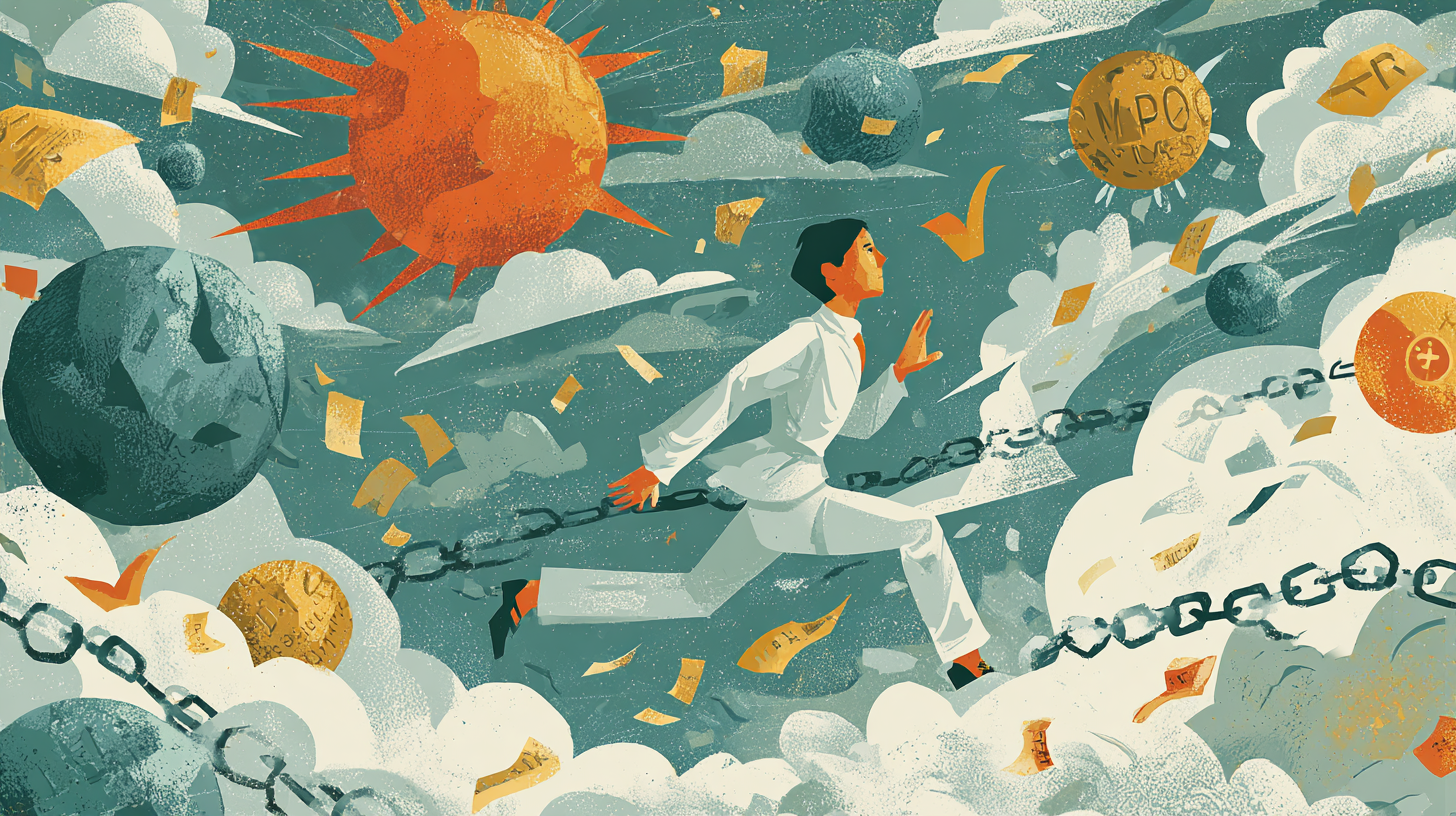Introduction
Understanding credit scores is vital for anyone seeking to navigate the financial landscape effectively. Credit scores serve as a numerical representation of an individual’s creditworthiness, derived from various factors that reflect their credit behavior. As we delve into this topic, we will explore the components that contribute to credit scores, their significance in financial health, common misconceptions surrounding them, and strategies to maintain a healthy credit profile.
The Components of Credit Scores 
Payment History
The most significant factor in determining a credit score is payment history, which accounts for approximately 35% of the overall score. This aspect reflects whether you have made your payments on time, missed payments, or defaulted on loans. A solid history of timely payments can improve your score, while late payments and defaults can severely damage it.
Credit Utilization Ratio
The credit utilization ratio, which constitutes around 30% of your credit score, is the amount of credit you are currently using compared to your total available credit. Maintaining a low utilization ratio—ideally below 30%—indicates to lenders that you are not overly reliant on credit, which can positively influence your score.
Length of Credit History
Length of credit history accounts for about 15% of your credit score. It involves the age of your oldest account, the age of your newest account, and the average age of all your accounts. A longer credit history can be beneficial as it provides lenders with more data regarding your credit behavior over time, indicating reliability.
Types of Credit Accounts
The types of credit accounts you hold make up approximately 10% of your credit score. This includes a mix of credit cards, installment loans, and retail accounts. Diversifying your credit portfolio can demonstrate to lenders that you can handle various types of credit responsibly, which can improve your score.
Recent Credit Inquiries
Finally, recent credit inquiries can impact your score, making up the remaining 10%. Each time you apply for credit, an inquiry is made on your credit report. Multiple inquiries within a short timeframe can signal to lenders that you may be financially stretched, potentially harming your score. However, rate shopping for loans—such as mortgages—generally counts as a single inquiry if done within a specific period.
The Relationship Between Credit Scores and Financial Health 
Access to Credit
Credit scores directly affect your ability to access credit. Lenders utilize these scores to assess the risk associated with lending money. A higher score typically translates to more favorable terms when borrowing, such as higher credit limits and a greater likelihood of loan approval. Conversely, individuals with low credit scores may face difficulties securing loans or may only qualify for credit with very high-interest rates.
Interest Rates and Loan Terms
The relationship between credit scores and interest rates is profound. Borrowers with higher credit scores are often rewarded with lower interest rates, which can significantly reduce the overall cost of loans. For example, a mere difference of 1% in interest rates on a mortgage can amount to thousands of dollars over the loan’s lifespan. This highlights the importance of maintaining a good credit score to secure favorable financing terms.
Impact on Insurance Premiums
Interestingly, credit scores can also influence your insurance premiums. Many insurance companies use credit scores as a factor when determining rates for policies such as auto and home insurance. A lower credit score can lead to higher premiums, as insurers may perceive individuals with poor credit as higher risk. This connection further underscores the interconnected nature of financial health.
Employment Opportunities
In some industries, employers may conduct credit checks as part of the hiring process, particularly for positions that require financial responsibility or access to sensitive information. A poor credit score might lead to difficulties in securing employment, especially in finance-related roles. Therefore, maintaining a healthy credit score can have implications beyond just financing; it can affect career opportunities as well.
Common Myths About Credit Scores 
Myth 1: Checking Your Credit Score Hurts It
A prevalent myth is that checking your credit score negatively impacts it. This is not true; when you check your own credit score (a soft inquiry), it does not affect your credit rating. However, when lenders check your score as part of a loan application (a hard inquiry), it may have a minor impact. Regularly monitoring your score is crucial to understanding your financial standing.
Myth 2: Closing Old Accounts Improves Your Score
Another misconception is that closing old accounts can boost your credit score. In reality, closing an old account can reduce your average credit age and decrease your available credit, potentially harming your score. It’s often better to leave old accounts open, as they contribute positively to your credit history, provided they are not incurring fees.
Myth 3: You Only Need to Worry About Your Score When Applying for a Loan
Many people believe that credit scores are only relevant when applying for loans. This is misleading; credit scores can impact various aspects of financial life, including insurance rates and employment opportunities. Regularly monitoring your credit score and understanding its fluctuations can help you manage your financial health more effectively.
Tips for Building a Strong Credit Profile
Pay Bills on Time
One of the simplest and most effective ways to build a strong credit profile is by consistently paying bills on time. Payment history is the most significant contributor to credit scores, so establishing a habit of punctual payments can pave the way for a healthy credit history. Using reminders or automated payments can help ensure that bills are never missed.
Keep Credit Utilization Low
Maintaining a low credit utilization ratio is crucial for a strong credit profile. To achieve this, aim to use less than 30% of your available credit at any given time. This can be accomplished by paying down existing balances and refraining from maxing out credit cards. By keeping utilization low, you can signal to lenders that you are financially responsible.
Diversify Your Credit Accounts
Diversifying the types of credit accounts you hold can enhance your score. This can include a mix of revolving credit (like credit cards) and installment loans (such as auto or mortgage loans). A well-rounded credit profile demonstrates to lenders that you can manage different types of credit responsibly, which can lead to better scores.
Regularly Monitor Your Credit Report
Regularly reviewing your credit report is essential for maintaining a healthy credit score. Checking for inaccuracies or errors allows you to address any discrepancies promptly, which could negatively impact your score. Many financial institutions provide free credit reports annually, allowing consumers to stay informed and proactive about their credit health.
Limit New Credit Inquiries
While it’s essential to explore credit options, it’s also vital to limit the number of hard inquiries on your credit report. Each time you apply for new credit, an inquiry is recorded, and too many inquiries in a short period can lower your score. Instead, consider researching and comparing offers before applying to minimize inquiries.
Strategies for Maintaining a Healthy Credit Score
Establishing a Budget
Creating a budget is an effective strategy for managing finances and maintaining a healthy credit score. A well-planned budget helps track income and expenses, ensuring that sufficient funds are available for bill payments. By adhering to a budget, individuals can avoid overspending and potential missed payments, which are detrimental to credit scores.
Setting Up Payment Reminders
Payment reminders are invaluable tools for ensuring timely bill payments. Whether through calendar alerts, smartphone apps, or traditional notes, reminders can help prevent late payments, which are a significant factor in credit scores. Additionally, setting up automatic payments for recurring bills can further safeguard against missed deadlines.
Utilizing Automated Payments
Automated payments can streamline your financial management and ensure that payments are made on time. By scheduling automatic withdrawals from your bank account for recurring bills, you can reduce the risk of late payments. However, it’s essential to monitor your account to ensure that sufficient funds are available, as overdrafts can incur fees and negatively impact your financial situation.
Addressing Errors on Your Credit Report
If you discover errors on your credit report, it’s vital to address them promptly. Inaccuracies can lead to lower credit scores, which may affect your ability to secure credit. Most credit reporting agencies allow consumers to dispute errors online, making the process straightforward. Keeping your credit report accurate is a key factor in maintaining a strong credit score.
Conclusion
Recap of the Importance of Credit Scores
Credit scores play a crucial role in an individual’s financial health, influencing everything from loan access and interest rates to insurance premiums and employment opportunities. Understanding the components of credit scores and actively working to maintain a good score can yield significant long-term benefits.
Final Thoughts on Financial Health
In conclusion, a proactive approach to managing credit can lead to improved financial well-being. By debunking common myths, employing effective strategies, and consistently monitoring credit health, individuals can build and maintain strong credit profiles that support their financial aspirations. A solid credit score not only opens doors to favorable lending opportunities but also enhances overall financial security.
FAQs
What is a credit score?
A credit score is a numerical representation of an individual’s creditworthiness, calculated based on their credit history and behavior.
How can I check my credit score?
You can check your credit score through various financial institutions, credit bureaus, or personal finance websites that offer free credit monitoring services.
How long does it take to improve a credit score?
Improving a credit score can take anywhere from a few months to several years, depending on the current score and the steps taken to improve it.
Can I improve my credit score on my own?
Yes, individuals can improve their credit scores through diligent management of their credit behavior, including timely payments and keeping credit utilization low.
Is it possible to have a perfect credit score?
While achieving a perfect credit score is rare, most people can attain a good credit score by following best practices in credit management.



